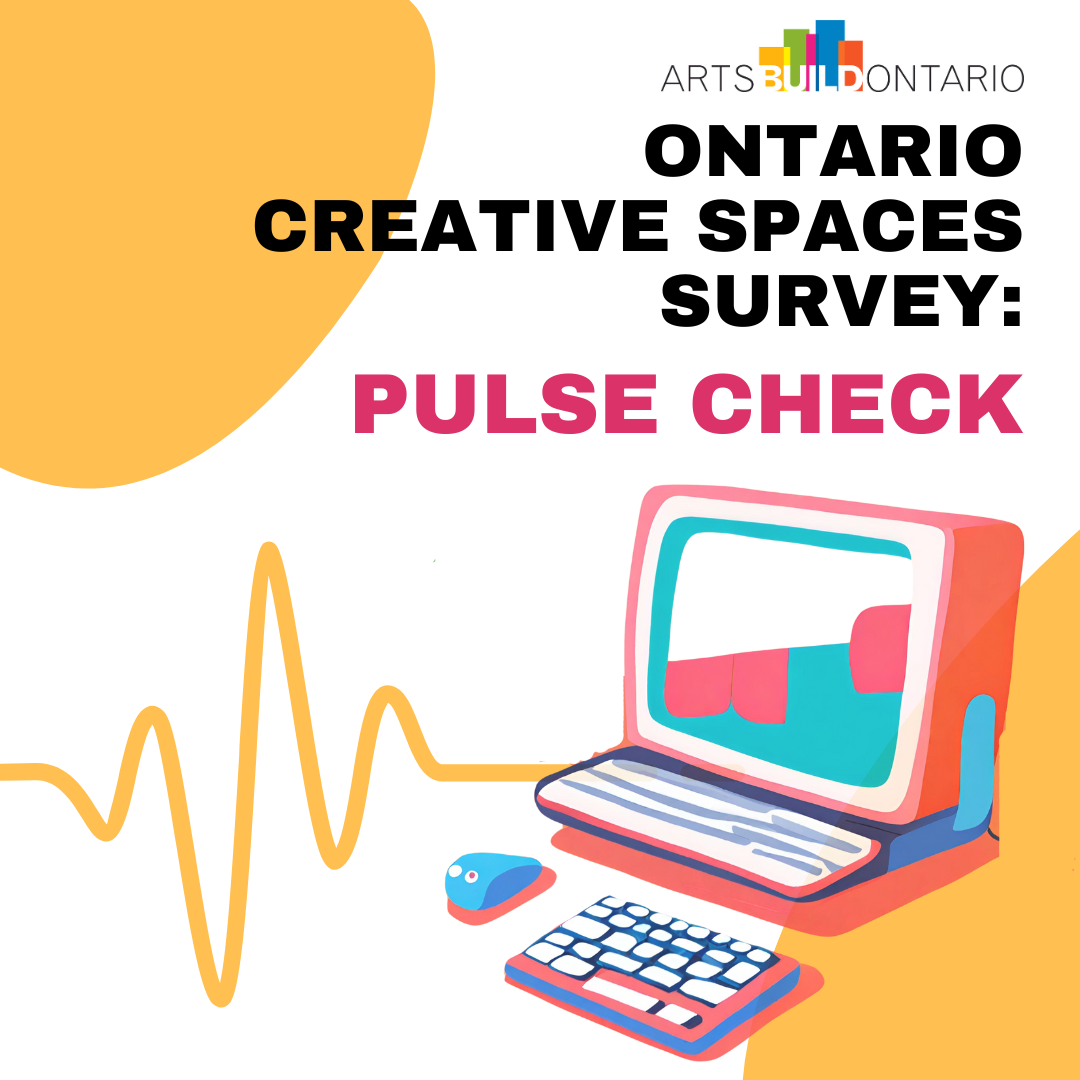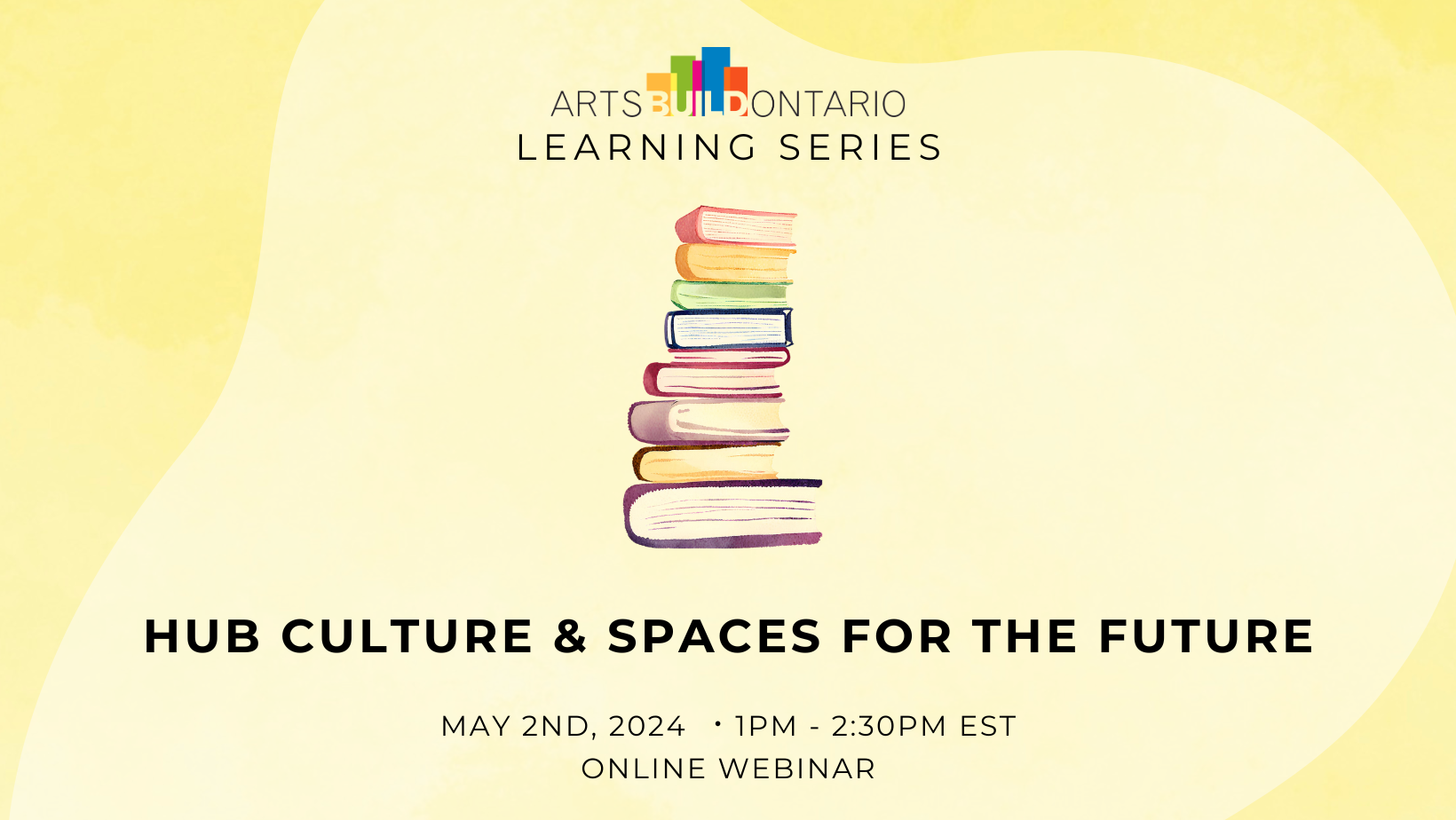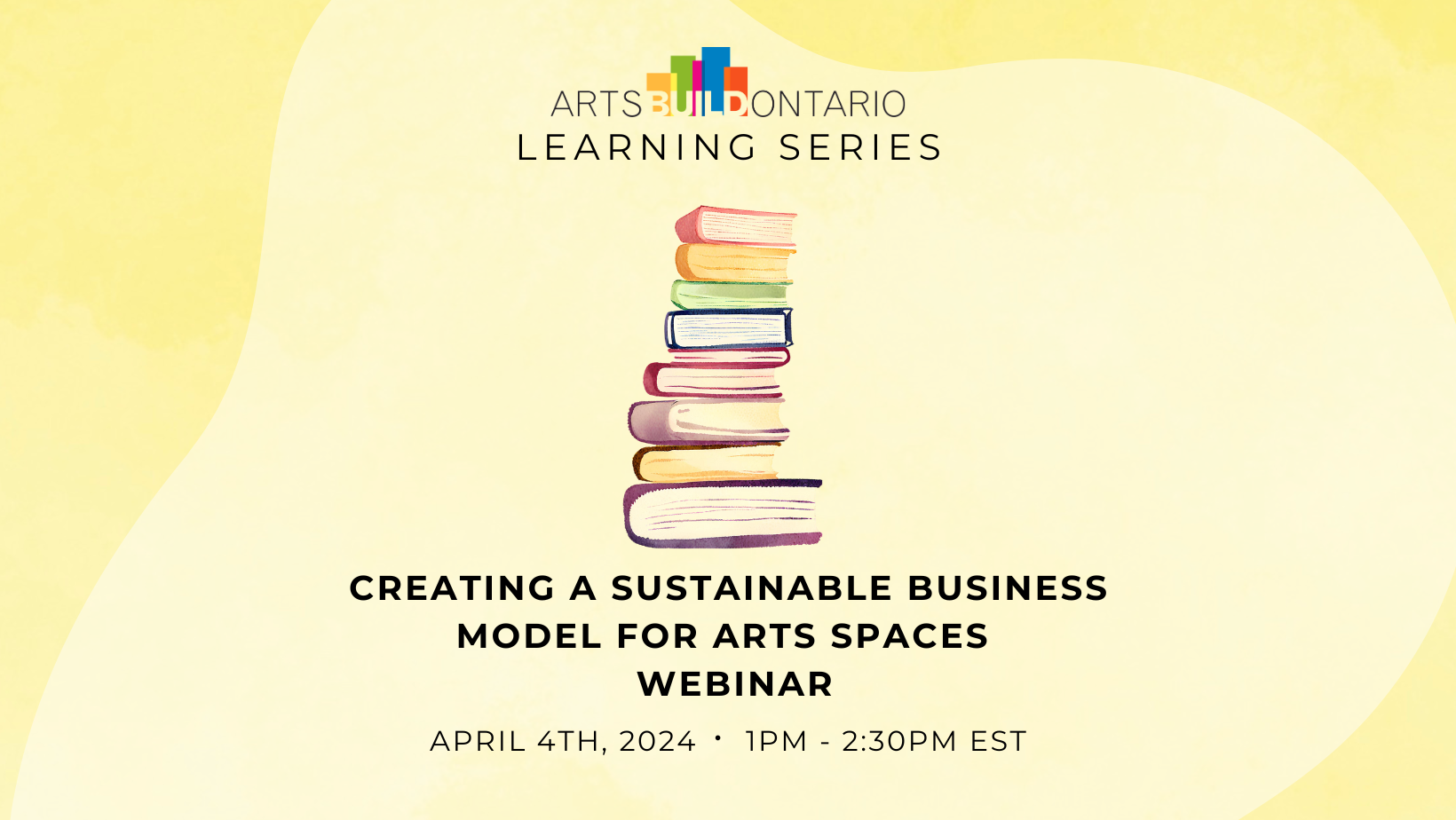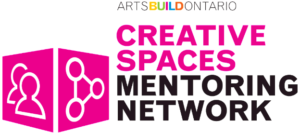This past year, ArtsBuild Ontario presented six webinars in the Learning Series aimed at supporting creative spaces in understanding and going beyond the Design of Public Spaces Standard as part of the Accessibility for Ontarians Act (AODA).
We are excited to share some success stories from different arts leaders across the province who have applied key learnings from these webinars to their organization or practice! Have a read through them all below:
Success Story #1: Informing Accessibility Plans
“The [webinar] was presented in a different perspective with more of a real connection to day-to-day ways of interpreting visitor needs. It was overall, very informative and helpful as we all work toward goals of inclusion and accessibility.
This webinar has created a good way to re-assess our current accessibly plan and is a reminder that we should evaluate the plan on a more regular basis-including input from those whose needs should be met in a public space. As there are people of many different abilities, there always seems to be more to learn in the area of accessibility. Putting that information into the context of creative spaces definitely added to my current level of knowledge and the mindset needed to actually think about and implement solutions”.
– Participant from Webinar: Let’s Talk About Disability and Creative Space
Success Story #2: Deepening Discussions with Clients
As an architect, Sandra Iksandar is more than familiar with building codes and provincial legislation. Participating in the webinar Best Practices for Architects, Designers & Creative Spaces on Accessibility served as a reminder of the value added that comes with going above the legislation to create accessible and inclusive spaces. Demonstrating how accessible buildings can be stylistically creative and visually appealing, speakers provided examples that were transferable to her clients. She was able to bring this information to her clients, and communicate the importance of considering accessibility in the planning phases of a renovation project and specifying accessibility in the Request for Proposals (RFP) process.
Success Story #3: Implementing Accessible Signage
For Lisa Wacheski, this webinar series has had a direct impact on the Canadian Transportation Museum and Heritage Village’s upcoming renovation project. Board approval has recently been given to go forward with a grant application for the replacement of signage in the museum. While they are still in the planning stage, information has been shared with board members on the need to adjust the signage to better reflect those with varying accessibility needs in terms of sight and language. As a result, the creation and installation of new signs will include both English and French, larger font, better lighting and appropriately displayed based on lines of sight, to take into great account the variety in abilities of their visitors.
Success Story #4: Transforming Spaces
From this webinar series, two underlying messages resonated with Michelle Alderson, Production & Event Coordinator at the Al Green Theatre. Firstly, she appreciated the examples that demonstrated how organizations have implemented creative designs to eliminate barriers in their facilities and remain a thriving community hub. Secondly, she was pleased the webinars highlighted the importance of forward facing customer service, consulting patrons with lived experiences and asking patrons how a space can better suit their needs.
As a member of her facility’s Accessibility Committee, she has shared lessons learned and resources provided with the committee, and will be applying them to an upcoming renovation project at the theatre. Along with plans to lower the information desk, they will soon be transforming the old box office room in their lobby into a designated area to support individuals with visible and invisible disabilities. As a multi-use space, it will be used as a quiet zone for individuals with sensory processing concerns and as a designated space to identify and make requests for access needs. It will also be equipped with assistive devices to help individuals communicate with staff if needed. As individuals of varying demographics and abilities frequent their public lobby, these facility upgrades are intended to insure their space is accommodating and inclusive.
Success Story #5: Improving Experiential Accessibility
In the webinar: Invisible Disabilities and Creative Spaces, presenters Alex Bulmer and Andrew Gurza highlighted practical solutions to empower creative spaces to better welcome and accommodate invisible disabilities. These included processes such as extending the time limits of online ticketing platforms; offering scent free spaces and the importance of making patrons feel comfortable expressing their access needs either in person or through digital platforms.
A participant from the webinar notes “we can update our approach to encourage a better and more inclusive level of customer service through some of the suggested practices mentioned in the webinar. We will update our orientation and training for staff and volunteers to reflect as many of these key points as we can.”


 In the past few years of post-pandemic recovery, the arts and culture sector has changed dramatically, including the cultural spaces landscape across Ontario.
In the past few years of post-pandemic recovery, the arts and culture sector has changed dramatically, including the cultural spaces landscape across Ontario.



